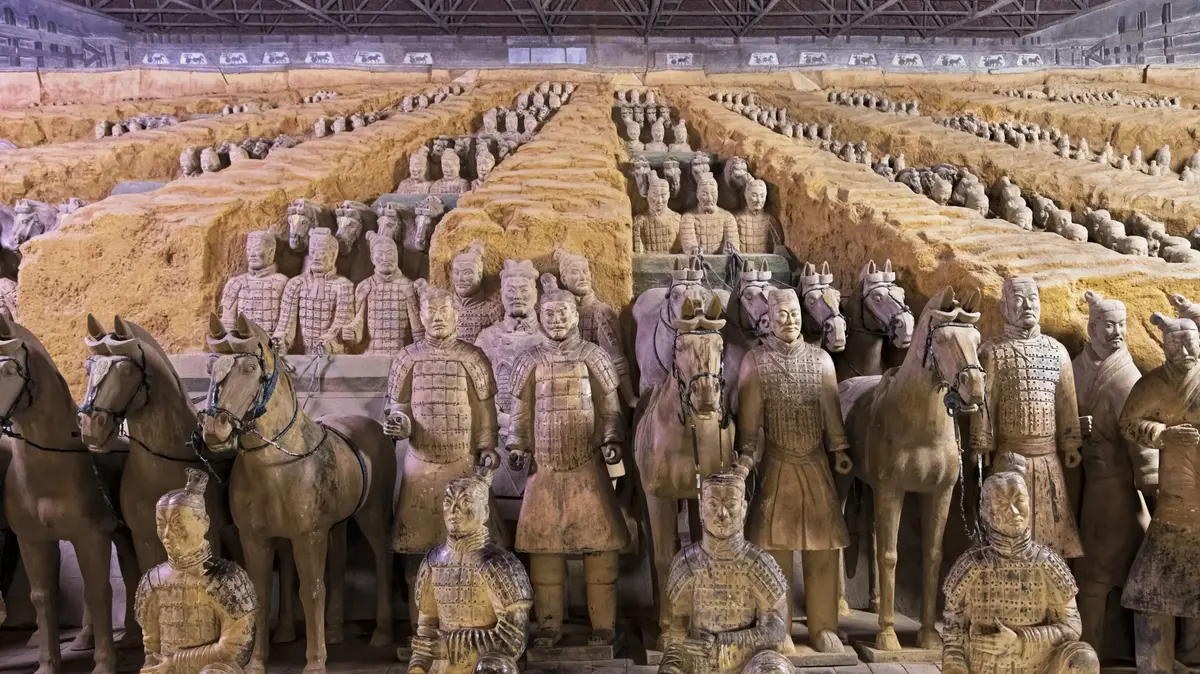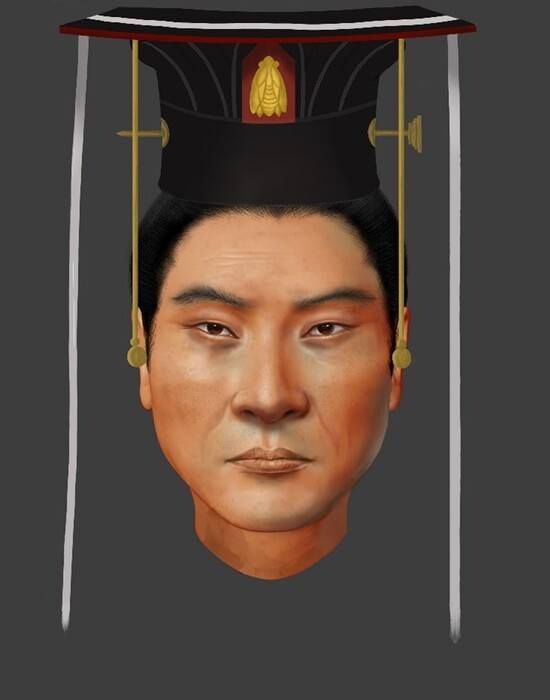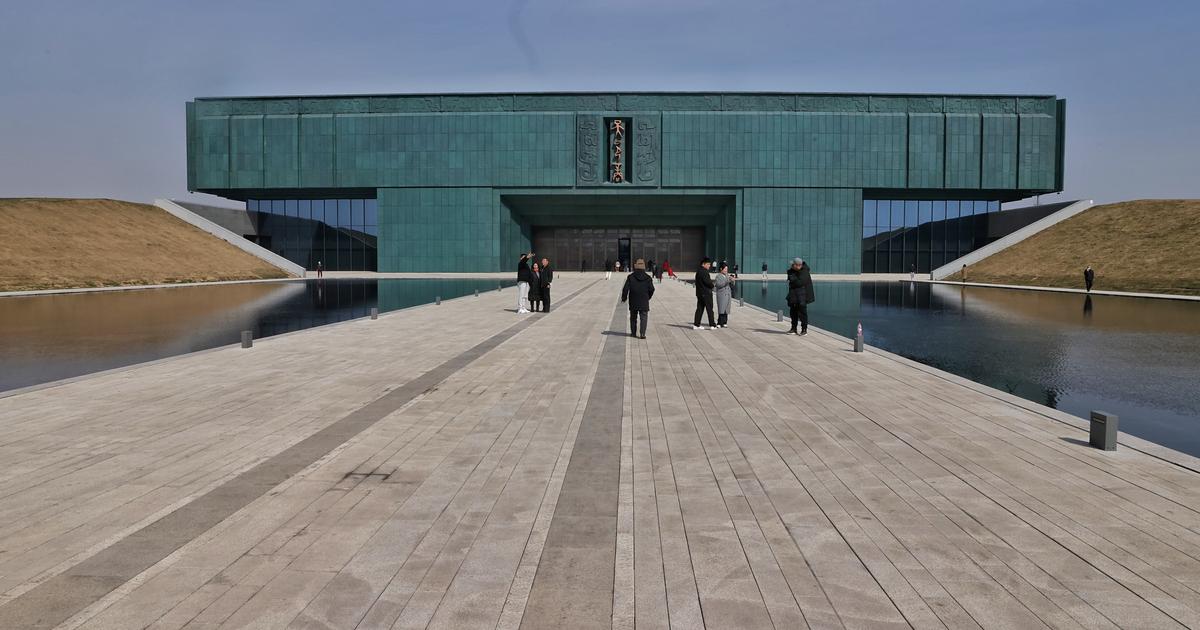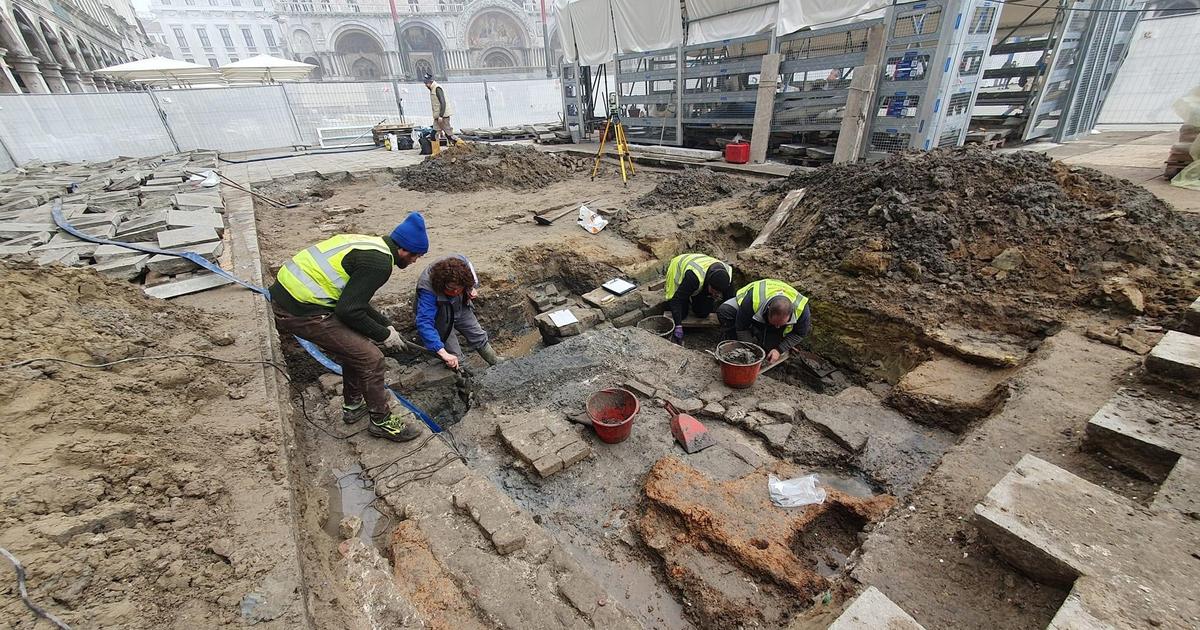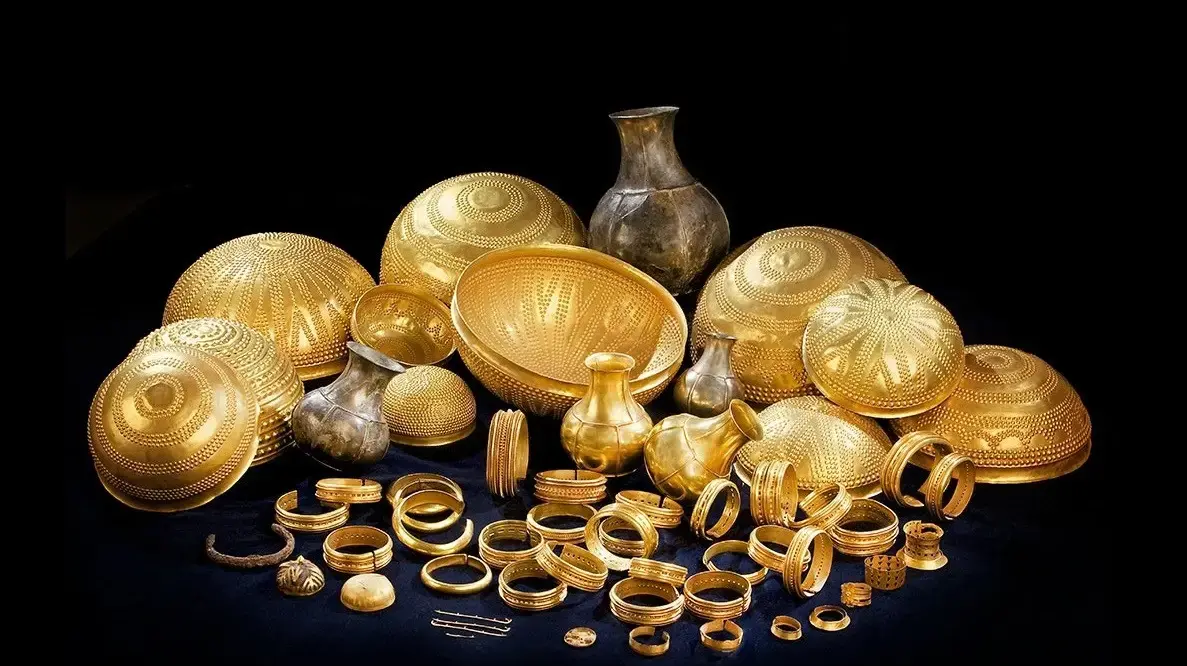The terracotta army discovered in March 1974 about 1,500 meters from the mausoleum of Qin Shahuang, the first emperor of China (@simplehistory_)
Traps and mercury poisoning are just some of the concerns of archaeologists considering whether to open the tomb of Qin Shahhuang, China's first emperor.
In 1974, farmers came across one of the most important archaeological discoveries of all time in a large field in Shaanxi Province, China.
While digging, they found the remains of a human figure made of clay.
That was just the tip of the iceberg.
Archaeological excavations have revealed that the field sits above several pits that were filled with thousands of life-size terracotta army statues of soldiers and war horses.
The mission of the Terracotta Army appears to have been to protect the mausoleum of Qin Shahuang, the first emperor of China, who ruled from 210-221 BC and is about 1,500 meters away.
While large parts of the necropolis surrounding the mausoleum have been excavated, his tomb That of the emperor himself has never been explored despite the enormous interest that surrounds it, in fact no one has seen what was inside this tomb since the emperor rested inside it - more than 2,000 years ago.
The terracotta army discovered in March 1974 at a distance of about 1,500 meters from the mausoleum of Qin Shahuang, the first emperor of China, (Photo: ShutterStock, DnDavis)
The main reason behind the reluctance to excavate the emperor's tomb is that archaeologists are concerned about how the excavation could damage the tomb and cause vital historical information to be lost.
Currently, only invasive archaeological techniques can be used to enter the tomb - at high risk of irreversible damage.
One of the clear examples of this comes from the excavations of the city of Troy in the 1970s under the direction of Heinrich Schliemann.
In his haste and naivety, his work managed to destroy almost all traces of the city he was trying to uncover.
Archaeologists explain that they do not want to be impatient and repeat the same mistakes.
More on the same topic
It makes more sense that you'll die if you drink it: "Eternal Life Potion" is found in an ancient tomb in China
To the full article
Scientists floated the idea of using certain non-invasive techniques to look into the tomb.
One idea is to use muons, the subatomic product of cosmic rays colliding with atoms in Earth's atmosphere, which can provide a glimpse through structures like an advanced X-ray.
However, most of these proposals have not taken off so far.
Another famous tomb
The great discovery of the 21st century: Finally found the tomb of Queen Cleopatra and her lover?
The story of Qin Shahhuang, the first emperor of China:
Traps that will kill any intruder and toxic liquid mercury that will wash away everything
Opening the grave could come with far more immediate and deadly dangers.
In an account written by the ancient Chinese historian Sima Qian around 100 years after the emperor's death, he explains that the tomb was wired with traps designed to kill any intruders.
"Rare objects and a wonderful treasure were put into the tomb. Craftsmen were ordered to prepare bows and arrows intended to shoot at anyone who tries to invade the tomb," it says.
Even if the 2,000-year-old bow weapons fail, the historian claims that a flood of toxic liquid mercury could wash away the gravediggers.
This may sound like a made-up threat, but scientific studies have tested mercury concentrations around the grave and found levels significantly higher than they would expect to see in a typical piece of land.
"Highly volatile mercury may have escaped through cracks, which developed in the structure over time, and our investigation supports the documentation of an ancient chronicle in the tomb, which we believe was never opened/looted," conclude the authors of one 2020 paper. For now, Qin Shahuang's tomb remains sealed And inaccessible, but certainly not forgotten.
Researchers hope that scientific progress can finally lead to the discovery of the tomb's contents.
The emperor himself, by the way, devoted a large part of his life to finding the legendary immortality medicine, which many believed in its existence and went on long journeys in an attempt to locate it.
He sent out a special expedition in order to find a legendary island that contains huge amounts of the miracle potion.
He saw himself as a god and aspired to eternal life.
Since he was afraid that the inhabitants of the six countries conquered by his army would try to assassinate him, he drank a potion composed of mercury that he thought would give him eternal life, but this is precisely what poisoned him and apparently led to his death at the age of 50, after 37 years in power.
tourism
news
Tags
China
Archaeology
Caesar

